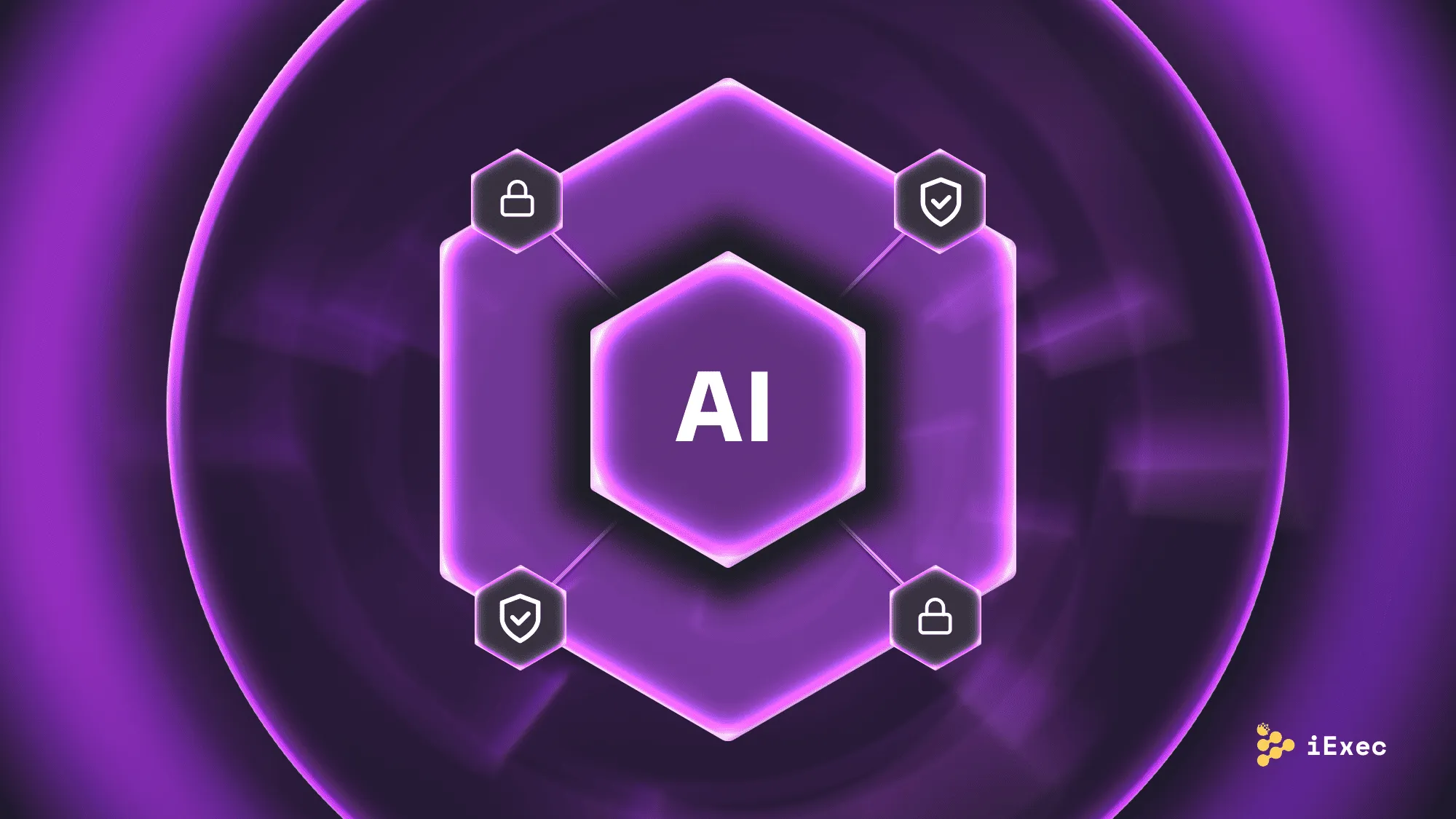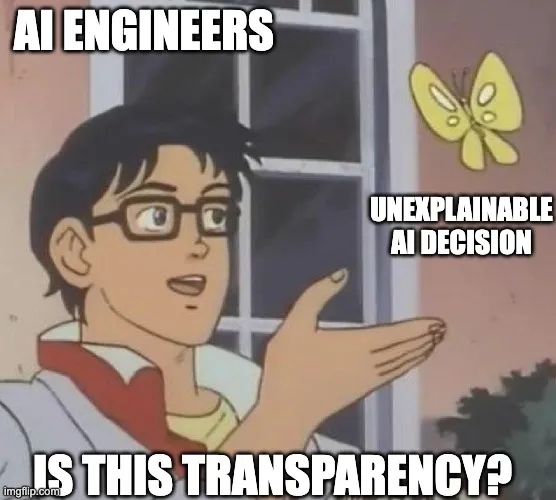
Artificial Intelligence (AI) has grown from a passing trend into an important tool. Three-quarters of organizations now use it to boost innovation, efficiency, and growth. By 2026, analysts project that 80% of enterprises will use AI-enabled applications, transforming industries across the board.
The marketing and advertising sector is the leading industry using AI to gain a competitive advantage. As people use AI more frequently and train it on sensitive business and personal data, an important question arises. How can we use this powerful AI technology while keeping data confidential?
As AI becomes more deeply integrated into business operations, ensuring privacy takes on critical importance.
Keeping AI data protected and private is not just about security. It is also about building ethical, responsible AI that respects both individuals and institutions.
Artificial Intelligence models, often viewed as a "black box” due to its opaque inner workings, raises several challenges. This lack of transparency makes it difficult to discern what’s happening inside.

The ability to clearly explain AI’s actions is critical, as users struggle to understand how and why decisions are made.
Privacy concerns make the issue worse. AI systems handle a lot of personal data. It is important to keep this information secure.
Additionally, data sovereignty has also to be a key consideration in the AI landscape. Uncertainty exists about who controls data and where it is stored, particularly when people deal with cross-border data flows.
The ethical factor adds another layer of complexity. As AI systems increasingly influence critical aspects of our lives, questions arise about whether these systems are upholding ethical standards, such as fairness and non-discrimination.
Security is obviously paramount; preventing breaches in an AI-driven world is a complex task that requires constant vigilance.
Lastly, the rising challenge of monetization is attractive for companies, which must balance profitability with the need to protect user privacy.
Confidential AI is designed to address these challenges and offers a comprehensive approach to solving the most pressing issues in AI today.
As AI continues to shape the future of technology, building and maintaining trust is essential. Confidential AI is key to building trust. It makes sure that every part of the AI process is secure, clear, and dependable. This includes data handling and decision-making.
Confidential AI establishes trust by securing both data and the model. It starts with users encrypting data directly on their devices, ensuring privacy from the beginning.
Running the model inside a secure environment, such as a secure enclave, also secures the AI model. This protection from the enclave prevents anyone from viewing or tampering with the model or private data.
One key feature of Confidential AI is that it can process data without accessing the underlying information directly.
This means that Confidential AI can make inferences, draw conclusions and make decisions while keeping the data and models private. This approach not only safeguards sensitive information but also enhances trust in the AI’s operations.
To further solidify trust, Confidential AI ensures that the AI model computations get performed honestly. The enclave ensures the program executes exactly as intended, without being altered or tampered.
Confidential AI refers to the use of confidential computing to ensure that sensitive AI workloads including the data, AI algorithms, and model parameters remain protected throughout their lifecycle. This includes training models, fine-tuning, and deployment phases. It is a privacy-first approach that allows AI services to operate securely, even in untrusted environments.
At its core, Confidential AI runs inside confidential computing environments, such as Azure Confidential VMs or secure enclaves powered by Software Guard Extensions (SGX). These environments shield data during processing, ensuring that not even cloud providers or system administrators can access it. This is essential for protecting AI, especially in industries where data privacy and security are paramount like healthcare, finance, and government.
Using confidential computing for companies means that they can execute AI deployments while maintaining security and compliance with strict regulatory frameworks. Confidential AI provides strong guarantees for data and AI integrity, supports attestation to prove workloads are running in trusted states, and enables privacy-preserving methods such as federated learning.
Beyond just compliance, Confidential AI protects intellectual property and sensitive business logic. It ensures trustworthy AI by allowing enterprises to retain full control over their datasets and AI models, whether they’re working with generative AI, conducting confidential fine-tuning, or integrating with tools from partners like Microsoft and NVIDIA.
Confidential AI enables a new standard for building secure, ethical, and scalable AI tools, all while keeping data private, compute trusted, and outcomes verifiable.
At iExec, our main technology is confidential computing. It ensures trust, traceability, and privacy. This keeps sensitive data safe during the whole process.
Through our blockchain-based platform using smart contracts and Trusted Execution Environments (TEEs), the iExec confidential computing enables stakeholders to define and record immutable rules on data (e.g. access, processing and policy) in smart contracts and Trusted Execution Environments to render them inviolable by default.
While Confidential AI increases protection in the model, result and inference, integrating blockchain technology adds an additional layer of verifiability and trust. The iExec blockchain records key steps of the AI process, providing comprehensive traceability.
This transparency allows anyone to verify each contribution, increasing trust in the AI process. Users and stakeholders can trust the AI model's results. Every step of the process is recorded on the iExec blockchain. This makes the results verifiable and ensures accuracy and integrity.
Building Confidential AI applications using iExec technology enables secure and private processing throughout the AI workflow.
The AI research team of iExec is developing several demonstration use cases aligned with this principle. One demo confidentially processing encrypted images and public descriptions to securely match them.
Another focuses on confidential image generation with encrypted prompts and provides encrypted results. Whether designing new products or refining strategic concepts, confidential execution ensures that intellectual property stays protected throughout the AI workflow.
In more advanced scenarios, Confidential AI agents built with Eliza OS run autonomously and locally, never phoning home or leaking data. These agents enable powerful automations while keeping data sealed, even from the platform itself. This marks a shift toward secure, user-owned intelligence at the edge, where privacy and performance go hand in hand.
More demos are being developed, and future articles will offer detailed insights into these changes.
With iExec Confidential Computing, user data stays fully protected throughout the process. Users can also set custom rules, like pricing for access and usage.
Similarly, developers of DApps can easily monetize their applications, while ensuring the privacy of user data. This creates a seamless framework for monetizing AI applications while keeping data secured and private.
So, what’s on the horizon for Confidential AI? The future looks promising, with rapid innovation aimed at enhancing security and privacy across industries. New developments such as Microsoft and NVIDIA launching Confidential Computing-powered GPUs signal a shift toward mainstream adoption of confidential AI technologies.
As AI integrates deeply into various industries, companies must be proactive in using confidential computing to protect data and manage risk. Confidential AI enables businesses to deploy sensitive AI workloads within confidential computing environments, using trusted tools like confidential VMs and Software Guard Extensions (SGX) to maintain control over their datasets, models, and outcomes.
Beyond security, this technology also tackles broader concerns like ethical transparency, data private guarantees, and security and compliance in regulated sectors. It sets the foundation for a new generation of AI services that are private, auditable, and resilient.
We are continuing to evolve our Confidential AI solutions. In future articles, we’ll delve deeper into technical demos and explore the broader impact of confidential fine-tuning and deploying AI algorithms safely at scale.